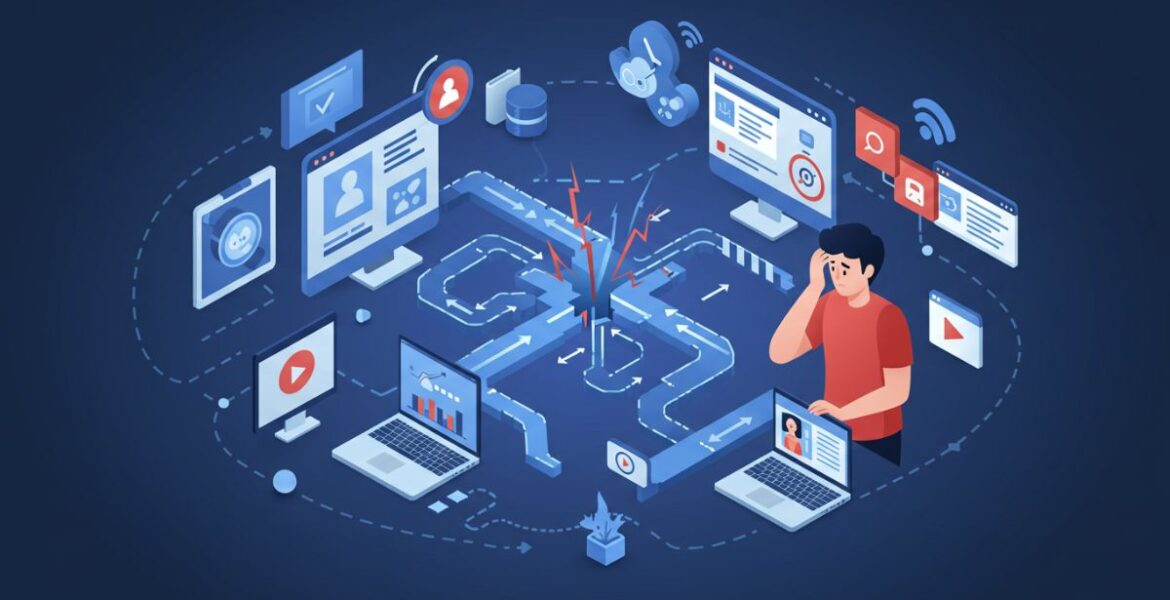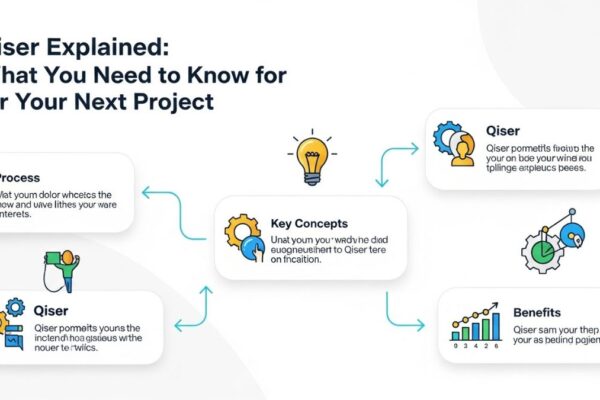Understanding internetchock: What It Is and How It Affects You

The internet has transformed our lives in countless ways. We rely on it for information, communication, and entertainment. But have you ever felt overwhelmed or anxious when scrolling through your feeds? You’re not alone. Many people experience a phenomenon known as internetchock. This term refers to the cognitive and emotional overload that can occur due to excessive exposure to online content.
As we navigate through an endless stream of notifications, updates, and images, it’s easy to feel disoriented or disconnected from reality. The digital landscape is vibrant and fast-paced, but with its benefits come significant challenges. Understanding what internetchock really means is crucial for maintaining our mental well-being in this hyper-connected world.
Let’s dive deeper into the causes behind this sensation and explore how it affects both individuals like you and me as well as society at large. By recognizing these effects, we can better equip ourselves to cope with the overwhelming nature of modern technology.
Causes of Internet Shock
The digital age brings a wealth of information at our fingertips. However, this constant influx can overwhelm anyone. Rapid advancements in technology contribute to feelings of anxiety and uncertainty.
One major cause of internetchock is the sheer volume of content online. With millions of articles, videos, and social media posts available daily, it’s easy to feel lost. The pressure to keep up can lead to mental fatigue.
Another factor is the speed at which news travels. Viral stories break within minutes, causing emotional reactions that often linger long after the moment has passed. This barrage leaves little time for processing or reflection.
Personal comparisons fuel discomfort. Social media showcases curated lives that may seem perfect compared to our own experiences. These comparisons can evoke feelings of inadequacy and distress as we navigate our realities against an idealized backdrop.
Effects of Internet Shock on Individuals
Internet shock can manifest in various ways for individuals. One common effect is heightened anxiety. The constant influx of information can be overwhelming, leaving many feeling unsettled.
Another significant impact is social disconnection. While the internet connects us globally, it can also create a sense of isolation at the local level. Many find themselves glued to screens rather than engaging with those physically around them.
Cognitive overload often results from excessive online activity as well. This state makes it difficult to concentrate or process thoughts clearly.
Mood swings are another potential consequence. Rapid shifts in information and emotions online can leave individuals feeling drained or irritable.
Distorted perceptions of reality frequently occur due to curated content on social media platforms. People may struggle with comparing their lives to others, leading to feelings of inadequacy or dissatisfaction.
Impact of Internet Shock on Society
The impact of internetchock on society is significant and multifaceted. As individuals grapple with overwhelming information, social cohesion can suffer. People find it difficult to connect meaningfully when inundated with streams of content.
Public discourse often becomes fragmented. Opinions clash more frequently as everyone shares their unfiltered reactions online. This fragmentation leads to polarized views, making genuine dialogue challenging.
On a broader scale, mental health issues rise alongside these societal changes. Anxiety and stress levels increase as users struggle to keep up with an ever-evolving digital landscape.
Moreover, misinformation thrives in this chaotic environment. The rapid spread of false narratives complicates decision-making processes for communities and governments alike.
As societies navigate the complexities brought about by internetchock, a collective reassessment of our relationship with technology becomes essential. It’s crucial for communities to seek balance amidst the chaos created by constant connectivity.
Coping with Internet Shock: Tips and Strategies
Coping with internetchock starts with self-awareness. Recognizing the signs of overwhelm is crucial. Take a moment to breathe and assess how you feel.
Establish boundaries around your online activities. Set specific times for checking emails or browsing social media, and stick to them.
Engage in offline activities that bring you joy. Reading a book, taking a walk, or enjoying time with friends can help reset your mind.
Practice mindfulness techniques like meditation or deep-breathing exercises. These methods can ground you when digital chaos feels overwhelming.
Limit exposure to negative news cycles that exacerbate feelings of anxiety. Curate your online feeds thoughtfully; follow accounts that uplift rather than drain.
Don’t hesitate to reach out for support from friends or mental health professionals if needed. Sharing your experiences can foster connection and help alleviate feelings of isolation related to internetchock.
Conclusion:
Understanding internetchock is essential in our increasingly digital world. As we navigate the complexities of online life, recognizing its causes and effects allows us to better manage our experiences.
This phenomenon arises from various sources—information overload, social media pressures, and rapid technological changes all contribute to feelings of overwhelm. Individuals often feel anxiety or confusion as they struggle to keep up with the constant influx of information.
On a broader scale, internetchock can have significant societal impacts. It affects how communities interact and share knowledge. The collective stress can lead to disengagement or polarization among groups.
You may also like

Exploring benzift78: The Next Big Thing in Tech Innovation

Qiser Explained: What You Need to Know for Your Next Project

Leave a Reply